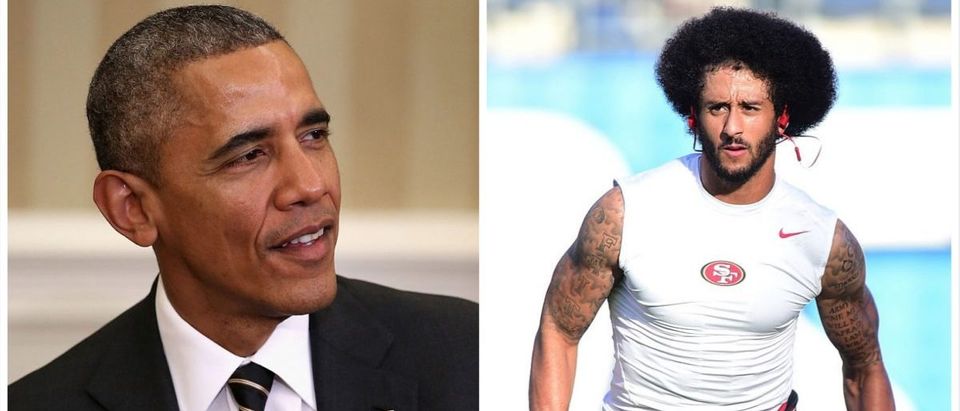President Obama has come to the defense of Colin Kaepernick’s refusal to stand for the national anthem at the beginning of a San Francisco Forty-Niners football game. The president is right to defend free expression as a part of what he called the “messy” democratic process. But he is wrong to say that Kaepernick was “exercising his constitutional right to make a statement.”
The Constitution has nothing to do with what an NFL player may and may not do during an NFL game. That is a private matter to be resolved between Kaepernick and his employer, subject to applicable state and federal employment laws. Even if there were a federal law requiring professional sports teams to allow their players to decline to stand for the national anthem, a player’s doing so would not constitute the exercise of a constitutional right. It would be the exercise of a statutory right, although a right Congress would seem to have no constitutional authority to create.
Constitutional rights exist in relation to the government. The 1st amendment, to which President Obama made indirect reference, says “Congress shall make no law . . . abridging the freedom of speech.” It does not say that the NFL or the Forty-Niners may not limit free expression. The only exception is where a private entity is performing a “state action,” a category that most assuredly does not include NFL footballs games.
Obama’s error in asserting that Kaepernick was exercising a constitutional right is commonplace among the general public. Employees object that their free speech is infringed when their employer limits their use of company email. Children tell their parents that they have a right to say what they wish in the home. Vandals insist that their right to free expression entitles them to paint graffiti on the walls of private buildings. But we should expect a little more sophistication in the nuances of constitutional law from our president and constitutional law professor-in-chief.
Perhaps Obama understands that Kaepernick was not exercising his constitutional right. Perhaps the president was just defending the abstract value of free expression as reflected by its protection in the 1st amendment. But loose talk about what the Constitution does and does not require and allow is dangerous coming from the most powerful man in the world.
Obama’s expansive interpretations of the executive authority under the Constitution have threatened the separation of powers, one of the essential structural constraints on power and guarantors of liberty. Now, his suggestion that the Constitution recognizes an employee’s right to do as he pleases while on the job undermines the fundamental divide between public and private affairs – a distinction many progressives would like to erode, but one that is essential to the preservation and exercise of the private liberties on which the nation was founded.


